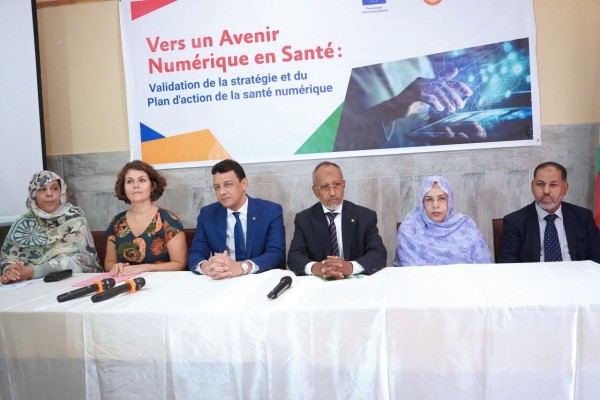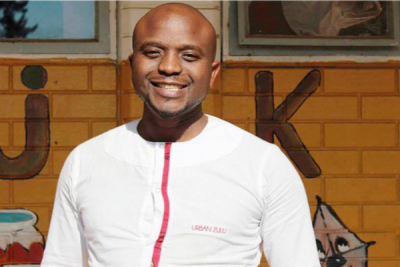Africa continues to grapple with some of the world's most pressing health issues. In this context, information and communication technologies (ICT) could be a game-changer in improving health and healthcare access across the continent.
Mauritania is set to implement a national digital health strategy by 2030. The draft document was presented on Tuesday, October 29, in Nouakchott at a workshop for review and adoption, overseen by Health Minister Abdallahi Ould Wedih and Minister of Digital Transformation and Administration Modernization Ahmed Salem Ould Bedda. Supported by partners like the European Union and the World Health Organization (WHO), this project aims to modernize healthcare services by integrating digital solutions.
“Digital health is an emerging strategic priority that will significantly strengthen national health policies and the National Health Development Plan (PNDS) to achieve universal healthcare coverage,” said Abdallahi Ould Wedih.
This initiative aligns with the electoral agenda of President Mohamed Ould Cheikh El Ghazouani, who considers digitalization the primary driver of the country’s economic modernization. By 2030, the administration aims to digitize key sectors of the economy through new technologies.
The e-Health strategy being introduced in Mauritania is expected to transform the healthcare sector by providing equitable access to quality health services, expanding coverage in remote areas, and enabling remote consultations through telemedicine. It will also help streamline healthcare costs.
According to a report published last year by McKinsey & Company, widespread adoption of digital health tools—such as teleconsultations, electronic medical records, and mobile apps for chronic disease management—could increase efficiency in African healthcare systems by up to 15% of total spending by 2030. This potential underscores the significance of digital transformation in Mauritania’s health sector.
Samira Njoya
Addressing youth unemployment in Africa is a top priority for many governments. Recognizing the significant challenges, these governments are turning to new technologies to revolutionize training programs. This approach aims to modernize teaching methods and skill development to better align with the evolving demands of today's job market.
Benin is taking steps to modernize its education sector by implementing a national strategy for the digitalization of technical and vocational education and training (TVET). The initiative was officially launched on Thursday, October 31, 2023, with a workshop led by Minister of Secondary, Technical Education, and Vocational Training, Kouaro Yves Chabi.
"The digital transformation of TVET seeks to build a pan-African network and ecosystem to accelerate the digital transition across the continent, improve the quality of inclusive education, and boost learners' employability," said Minister Chabi, highlighting the anticipated impact of this shift for young learners in Benin.
This project aligns with the broader vision of the Pan African Initiative for Digital Transformation of TVET and Skills Development Systems in Africa, launched in 2021 by UNESCO and its partners as part of the African Union’s Continental Education Strategy (CESA 2016-2025), in line with the Education 2030 Agenda. The goal is to establish a strong foundation for modern, adaptable skills that meet the demands of a rapidly changing labor market.
In a context marked by high youth unemployment across Africa—where over 10 million young people enter the workforce each year, often without the necessary qualifications—TVET digitalization is a crucial response. This transformative program will not only modernize technical and vocational education but will also equip young people with skills aligned with international standards, integrating Benin into the global digital economy and preparing learners to face future challenges.
Samira Njoya
Passionate about entrepreneurship, he leverages technology to help farmers grow their businesses. He also provides communities with opportunities to invest in agriculture and livestock sectors.
Ntuthuko Shezi (photo) is a South African serial entrepreneur and the founder and CEO of Livestock Wealth, an agrifinance company.
Founded in 2015, Livestock Wealth offers a digital platform that connects potential investors with certified farmers who own cattle, macadamia trees, or farmland. The start-up facilitates investment agreements, ensuring transparency and trust between all parties involved. Through this model, Livestock Wealth recruits qualified farmers who, with the invested capital, manage assets on behalf of investors to achieve expected returns, allowing clients to invest in tangible, sustainable assets.
In 2020, the company introduced the Farmers Club Meat Box, an e-commerce service that allows customers to purchase grass-fed beef through its online platform.
Before founding Livestock Wealth, Ntuthuko Shezi co-founded Imfundo in 2003, serving as CEO until 2007. Imfundo was a math and science school offering supplementary Saturday education to students from Alexandra and Soweto.
Shezi graduated from the University of Cape Town in 2001 with a bachelor’s degree in electromechanical engineering. His professional career began in 2002 at Accenture, a global management and technology consulting firm, where he worked as a strategy consultant.
In 2006, he became CEO of Scratch Mobile, an airport-based car panel cutting and spray-painting business. From 2014 to 2016, he worked as a program manager at Connectivity, Entrepreneurship, Energy, and Education for Entrepreneurship (CE3), an initiative aimed at stimulating local economic activity in South Africa.
Melchior Koba
Africa can address critical educational challenges by leveraging scalable technology to provide quality education to millions. It will help build a more skilled, connected, and economically resilient generation in these regions.
Kenyan edtech innovator Eneza Education has joined forces with Pakistan's Knowledge Platform in a strategic merger that forms a pioneering educational technology venture spanning Africa and Asia. The cross-continental union, announced on October 29, is headquartered in Singapore. It brings together Eneza’s SMS-based learning solutions for underserved African communities with Knowledge Platform’s gamified digital learning tools popular across Asia.
Wambura Kimunyu, former CEO of Eneza and now Chief Growth Officer of Knowledge Platform, emphasized the merger's focus on inclusive learning. "With over three billion young people across emerging markets, this collaboration will fuel education equity for a sustainable future," he stated, highlighting how Eneza's direct-to-consumer model integrates with Knowledge Platform’s B2B approach to serve diverse learner needs.
Mahboob Mahmood, CEO of Knowledge Platform, praised Eneza's affordable, impactful learning model, which has a track record of delivering education through SMS to students without reliable internet access. "Eneza’s reach complements our gamified curriculum approach, creating a powerful blend of low-cost and high-impact educational solutions," he said.
Africa has around 98 million out-of-school children and youth, according to UNESCO, with many facing challenges like limited school infrastructure and teacher shortages. Edtech solutions, such as Eneza Education's SMS-based platform, make learning accessible even without internet, helping underserved communities stay connected to learning resources despite infrastructure challenges.
Eneza has been a pioneer in mobile-first education across Africa, allowing students to access educational content even in areas with limited internet connectivity. The scalable model, combined with Knowledge Platform's adaptive and interactive learning strategies, promises to extend accessible education across remote or underserved areas.
Hikmatu Bilali
Local device production can enable African countries to lower costs, making technology more affordable and accessible to a broader population. This shift helps bridge the digital divide and empowers African nations to claim a stronger stake in the booming global digital economy.
The National Agency for Science and Engineering Infrastructure (NASENI) has partnered with Imose Technologies Ltd. to unveil a new line of laptops and tablets manufactured in Nigeria. The announcement made by NASENI on Monday, October 28 marks a significant milestone in the nation’s drive towards technological self-reliance. It emphasizes improved access to affordable and locally produced technology, particularly benefiting students and professionals.
NASENI’s Executive Vice Chairman, Khalil Halilu, highlighted the agency’s ambition to become a prominent player in Nigeria’s tech industry. “At NASENI, we are building a national brand. Going forward, every household in Nigeria will have one NASENI product or the other,” he stated.
The laptops and tablets embody NASENI's guiding principles of Collaboration, Creation, and Commercialisation (3Cs). Partnering with Imose Technologies furthers NASENI’s mission to reduce Nigeria’s import dependency by fostering in-country technology solutions. It aligns with President Bola Ahmed Tinubu’s Renewed Hope Agenda, which prioritizes local content development to reduce Nigeria's dependency on imported devices.
Osayi Izedonmwen, Chairman of Imose Technologies, voiced pride in this partnership, spotlighting Imose’s ten-year commitment to addressing Nigeria’s unique challenges through local device manufacturing. He emphasized that this collaboration is crucial for bridging Nigeria’s digital divide and expanding technology access for both educational and professional use.
According to the United Nations COMTRADE database on international trade, Nigeria’s imports of electrical and electronic equipment totaled $3.11 billion in 2023. By manufacturing these devices locally, NASENI and Imose could significantly reduce this expenditure, allowing Nigeria to reinvest savings back into the local economy.
The initiative is expected to contribute to job creation and stimulate economic growth. It will help meet Nigeria's demand for accessible and reliable technology, essential for boosting digital inclusion and driving the nation’s digital economy forward.
Hikmatu Bilali
After studying finance, he gained several years of experience working in various companies. He now leverages technology to offer financial solutions to communities.
Tshepo Moloi (photo) is a South African entrepreneur and expert in finance and economics. He is the founder and CEO of Stokfella, a fintech startup launched in 2016.
Stokfella was born from the idea of modernizing collective savings and fostering community growth. By combining technology, finance, and cooperative economics, the startup aims to transform how South Africans save and build wealth in groups. Stokfella simplifies the management of rotating savings groups by enabling organizers to create groups, set savings goals, make secure payments, and track collective financial progress. The platform also offers tutorials and expert advice to support users on their shared savings journey.
Moloi holds multiple degrees from the University of Johannesburg. In 2009, he earned a master’s in mechanical engineering. In 2010, he completed a master’s in business management, accounting economics, and corporate law, followed by a master’s in finance in 2018.
His career began in 2008 as a lecturer at the University of Johannesburg. In 2011, he joined South African financial firm Nedbank, initially as a pricing specialist. He went on to serve as manager of pricing initiatives and reviews and later as a strategic analyst.
Melchior Koba
A trained computer scientist with several years of experience in web development, he created a digital platform to facilitate collaboration among various stakeholders in the agricultural sector.
Francis Bemyin Bibiang (photo) is a Cameroonian web developer, data analyst, and cybersecurity specialist. In 2018, he co-founded Iwolonet, a social network that facilitates business relationships between producers and buyers of agricultural products across Africa.
The platform enables farmers, livestock breeders, equipment suppliers, and pesticide providers to promote their products and services, enhancing their sales opportunities. It also offers investors the chance to identify promising agribusiness projects for investment. Service providers, consultants, and support specialists can showcase their expertise to producers in need of assistance.
Iwolonet includes a job-matching space for employers and job seekers in the agropastoral sector. To date, the mobile app has been downloaded over 10,000 times on Google Play.
Francis also heads Research and Development at Bloosat CM, a Cameroonian operator delivering high-speed internet access nationwide and across the sub-region.
The Cameroonian holds a diploma from the Institut Samba Supérieur, where he earned a Higher National Diploma (BTS) in IT management in 2014. He recently added two more qualifications to his portfolio—a project management certification and a cybersecurity diploma obtained in 2024 from the Oxford Home Study Center (OHSC), an online educational institution.
His professional career as a web developer began in 2014, with roles at the IT company Wise Decision, the F2B CONCEPT’ tech lab, and the software and electronics design start-up KENTNIX.
Melchior Koba
The digitization of healthcare in Africa presents a crucial opportunity to improve access to and quality of medical services. In this context, new and innovative initiatives are emerging to address the pressing challenges within the healthcare sector.
Africa now has a dedicated digital marketplace for healthcare. Developed by the Digital Impact Alliance in collaboration with the Africa Centres for Disease Control and Prevention (Africa CDC), the platform was unveiled on Tuesday, October 29, at the third Africa HealthTech Summit in Rwanda. This initiative aims to serve as a one-stop shop for targeted and accessible digital health solutions, offering a practical response to the sector's challenges.
“The Africa HealthTech Marketplace is a game-changer for healthcare in Africa. By offering a platform that showcases targeted, scalable solutions, we are empowering health providers across the continent to access the tools they need to improve health outcomes,” said Jean Kaseya, Director General of Africa CDC.
This project emerges against a backdrop of overburdened health systems in Africa, which face significant challenges such as insufficient infrastructure, a shortage of medical personnel, and underfunded public services. According to the World Health Organization, over 110 million people in Africa lack access to basic healthcare, highlighting the urgency of the situation.
Digital health innovations, including telemedicine, mobile health applications, and electronic medical records, offer promising solutions to these challenges. However, these innovations often remain fragmented, lacking a central platform that enables healthcare providers, governments, and organizations to find the right tools for their specific needs.
The new marketplace aims to address this issue by facilitating the identification, assessment, and acquisition of digital tools. The platform seeks to enhance access to digital health solutions, promote local innovations, improve healthcare outcomes, and foster collaboration and partnerships among industry players.
Samira Njoya
Digital transformation is a key driver for revitalizing local economies and modernizing small businesses. By adopting digital solutions, these enterprises can boost their efficiency and competitiveness in response to changing market dynamics.
Telecom operator Orange Morocco and online commerce platform Chari.ma announced a strategic partnership on Monday, October 28, aimed at accelerating the digital transformation of Morocco's local retailers.
“This partnership with Chari.ma reflects our commitment to supporting Morocco’s digital transformation. By equipping local Moroccan retailers with the most effective digital tools, we are helping to enhance the appeal of our digital ecosystem,” said Hendrik Kasteel, CEO of Orange Morocco.
Under this agreement, Chari.ma will directly integrate Orange's services into its e-commerce app, providing retailers with essential opportunities for growth and modernization. The initiative aligns with the Morocco Digital 2030 strategy, which seeks to expand the digital economy and promote financial inclusion across the country.
This project is anounced amid a strong expansion of local retail in the kingdom. According to data provided in 2023 by Minister of Industry and Commerce Ryad Mezzour, local retail represents 58% of the sector's transactions, 6% of job opportunities, and 80% of sales points in Morocco. This collaboration is expected to enhance the competitiveness of small businesses and strengthen Morocco's digital ecosystem by making digital tools more accessible and better suited to the needs of local retailers.
Samira Njoya
In 2021, the global venture capital market contracted significantly, a trend that continued, severely affecting startup funding in Africa. Several industries saw business failures as a result. But the tide now seems to be turning.
African startups in agriculture and food technology (AgriFoodTech) raised $145 million in the first half of 2024, marking a 1.6% increase from the same period in 2023, despite a global slowdown in venture capital, according to a report published on October 17 by venture capital firm AgFunder.
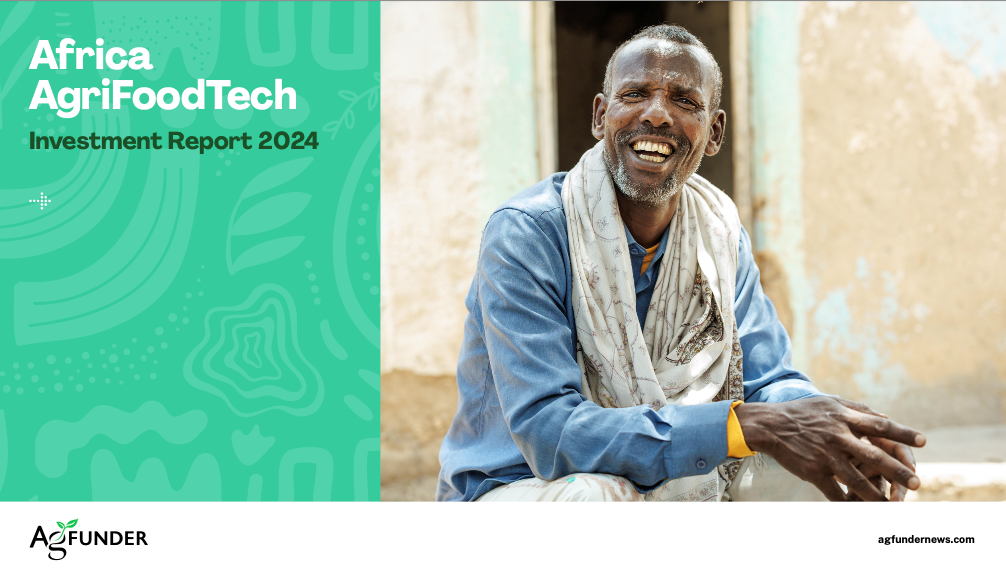
The Africa AgriFoodTech Investment Report 2024 suggests that this modest uptick signals a potential recovery in investment for startups transforming the continent's agriculture and food sectors. This follows a significant decline in 2023. Last year, funding plunged by 62% to $275 million after strong performances in 2022 and 2021, when investments reached $732 million and $531 million, respectively.
This year’s slight rise in funding from January to June came alongside a 27% year-on-year drop in deal volume, with only 39 transactions recorded. This points to investors’ increased caution, favoring more mature AgriFoodTech startups over early-stage ventures.
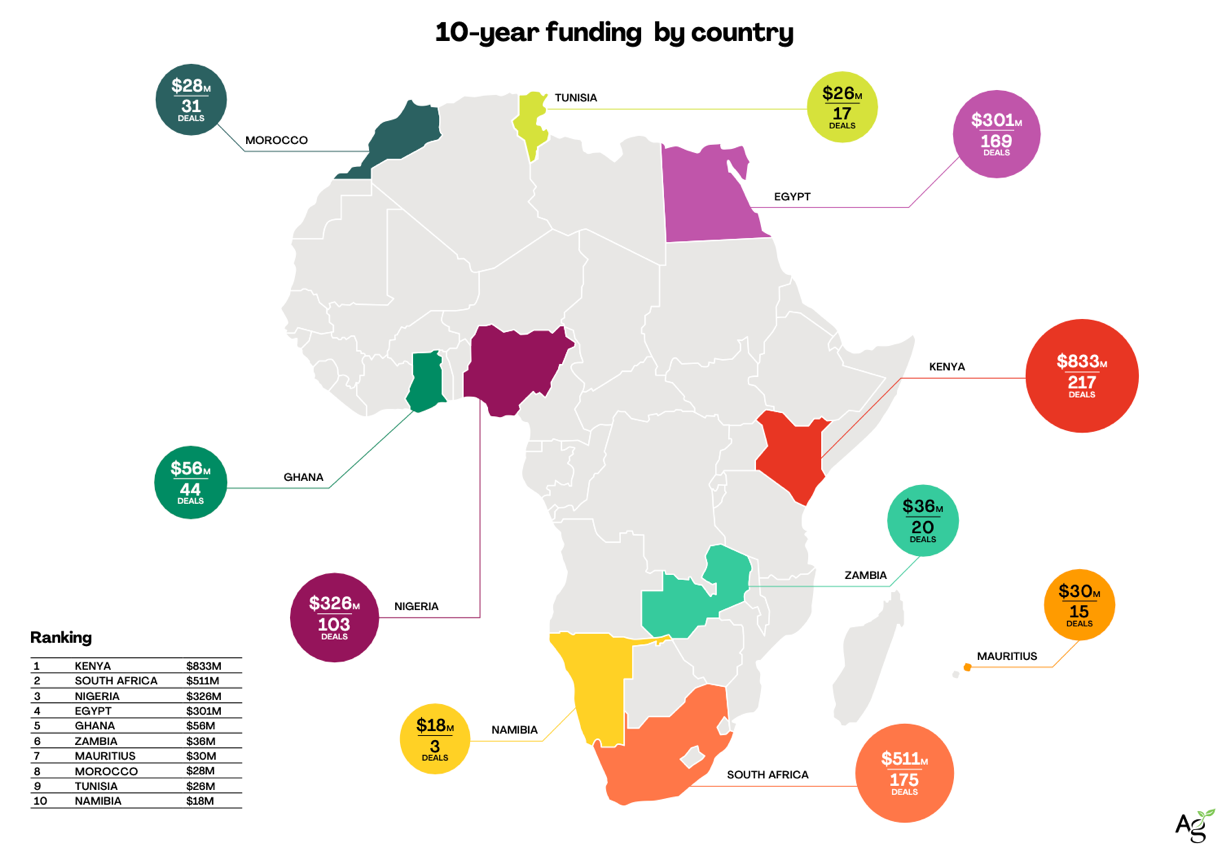
Investment distribution reveals a strong focus on a few key countries, with Kenya leading, securing $83 million across 19 deals—over half of all recorded funding. Egypt and Nigeria followed, raising $24 million and $15 million, respectively.
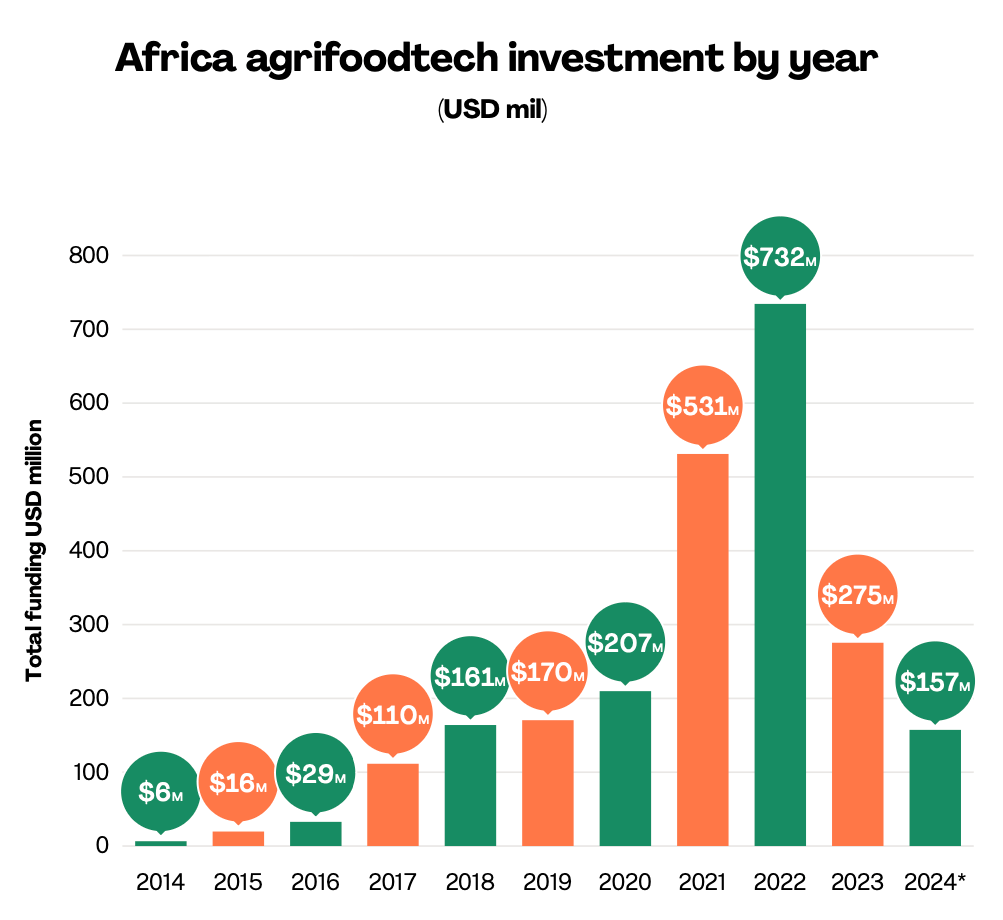
In terms of sector focus, fintech and marketplaces captured 41% of the total funding, while startups specializing in innovative agricultural equipment, such as robotics and mechanization, attracted 17.5%. Mid-value chain startups—focusing on food safety, traceability, logistics, transportation, and processing—received 15% of the funds raised in the first half of 2024.
The report also highlights that African AgriFoodTech companies have received a cumulative $2.4 billion in investment over the decade from 2014 to 2023. However, funding remains concentrated in key tech hubs. Kenya stands out as a “hotspot” for agro-innovation, leading the pack with $833 million in funding over the past decade, followed by South Africa ($511 million), Nigeria ($326 million), and Egypt ($310 million). Together, these four countries account for 88% of all AgriFoodTech startup funding on the continent.
More...
With Africa’s digital economy rapidly expanding, partnerships like this play a crucial role in bridging the digital skills gap. By integrating AI into data-driven decision-making, such collaborations can produce solutions uniquely suited to local challenges.
Kenya has announced a new collaboration with Google to bolster the nation's digital infrastructure and expand digital skill development for citizens. In a meeting held yesterday October 29 with Google’s President for Europe, Middle East, and Africa, Matt Brittin, Kenya’s Cabinet Secretary for Information, Communication, and the Digital Economy, Dr. Margaret Ndung'u, and Cabinet Secretary for Tourism and Wildlife, Hon. Rebecca Miano, discussed the ambitious partnership, which will center on leveraging artificial intelligence (AI) and digital tools to support key sectors.
Key objectives of the partnership include strengthening Kenya's cybersecurity and empowering locals with digital skills. Google’s technology will support Kenya’s tourism industry by using AI-powered data insights to enhance conservation efforts, attract international visitors, and improve digital experiences for tourists.
This collaboration supports Kenya’s Vision 2030 goals of creating a secure and inclusive digital landscape, unlocking innovation and economic growth opportunities. It also aligns with Kenya's Digital Economy Blueprint, which aims to ensure universal digital access and engagement, positioning the country as a leader in digital transformation within Africa. Furthermore, the United Nations Economic Commission for Africa (UNECA) projects in its Artificial Intelligence in Africa: Economic Development Potential and Challenges to Overcome 2024 report that the adoption of AI could add nearly $150 billion to the continent's GDP by 2030.
The initiative underlines Kenya’s commitment to a digitally-driven economy, setting a foundation for long-term growth and enhanced global connectivity.
Hikmatu Bilali
In response to contemporary security challenges, many countries are turning to advanced technologies to enhance their protection. Gabon is following suit and committing to this approach to secure its territory effectively.
Gabon plans to establish a National Territorial Surveillance System (SNST) supported by satellite technology to strengthen national security through space-based solutions. The project was discussed on October 29 at a workshop organized by the Gabonese Agency for Space Studies and Observations (AGEOS), under the guidance of Bonjean Rodrigue Mbanza, Minister of Digital Economy and Information Technology.
"The idea is to provide defense and security forces with technological tools for optimized management of the country's security. Additional resources are being acquired to bolster maritime and land security," explained Aboubakar Mambimba, Director General of AGEOS.
The project represents a shift toward modern surveillance methods, moving away from traditional approaches. It responds to rising cross-border crime, including maritime piracy, poaching, and environmental offenses. National security has been a strategic priority for transitional President Brice Clotaire Oligui Nguema.
The SNST would combine satellite imagery with AI-powered analysis for real-time territorial monitoring. Automatic alerts and drones for close-range tracking would allow security forces to respond swiftly to threats, enabling coordinated interventions. A centralized database would track trends and support strategic planning against illicit activities.
If implemented, this system could significantly reduce security risks nationwide. Beyond protecting national sovereignty, it could also aid ecosystem conservation, supporting efforts against deforestation and wildlife trafficking. Through this project, Gabon aims to assert its leadership in space-based security and environmental preservation in Central Africa.
Samira Njoya
Nigeria-based fintech Moniepoint has raised $110 million in funding from investors, including Google, to expand digital payments and banking solutions across Africa. The investment, announced Tuesday, October 29, supports Moniepoint's goal to become a key player in Africa's financial ecosystem.
Existing investors Development Partners International and Lightrock led the round, with Google’s Africa Investment Fund and Verod Capital joining as new backers.
Moniepoint will use the capital to grow its business across Africa and build a unified platform for digital payments, banking, FX, credit, and business tools.
Kenya aims to accelerate the development of its space industry, viewing it as a key driver of socioeconomic progress. The country’s first Earth observation satellite, designed and built by local engineers, was launched in April 2023.
The Kenya Space Agency (KSA) announced on Monday, October 28, the launch of a training program focused on nanosatellite (CubeSat) development, in partnership with the Italian Space Agency (ASI). The program, which runs through November 8, is led by ASI industry experts and professors from the University of Rome “La Sapienza.”
Thirty participants, including students and KSA technical staff, are benefiting from the hands-on training, which aims to bridge the technology gap and enhance Kenya’s capabilities in space science and technology.
“This Cubesat Training Course is aimed to benefit the participants by equipping them with essential skills and experience in satellite development. The course is intended to bridge the technology gap and help Kenya develop its indigenous technical capabilities to drive future advancements in space science and technology,” the KSA stated.
The initiative builds on an online training program held from July 22 to August 16, 2024, which provided theoretical knowledge on nanosatellite development. That program was organized by KSA and the U.S.-based company Teaching Science & Technology, Inc. (TSTI).
The training aligns with KSA’s strategic plan for 2023-2027, which aims to foster Kenya’s emerging space economy and contribute to national socioeconomic development.
By empowering Kenya to build its own nanosatellites, the program is expected to further the country’s space ambitions. In April 2023, Kenya launched its first operational Earth observation satellite, Taifa-1, which was designed and developed by a team of Kenyan researchers. Taifa-1 supports various sectors, including agriculture, food security, natural resource and disaster management, and environmental monitoring.
Isaac K. Kassouwi


